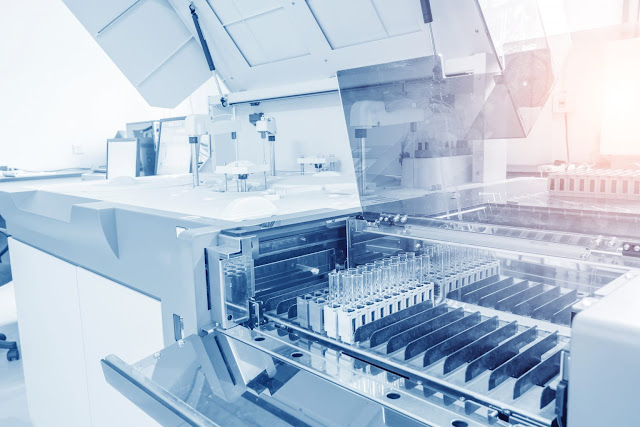Creating and improving laboratory technologies requires a multidisciplinary approach called lab automation
Lab automation is a multidisciplinary approach to creating and improving laboratory technologies in order to enhance medical testing and procedures. Automated procedures, which were potentially risky and prone to error, have been used to replace the manual steps.
Lab
automation is the method by which tools and
apparatus may be managed with the least amount of human contact. Resources at
Home What is lab automation? In order to enable new and enhanced operations,
laboratory automation involves integrating automated technologies into the lab.
A multidisciplinary
approach to research, development, optimization and use of laboratory
technologies that support new and enhanced procedures is laboratory automation.
Professionals in the field of laboratory automation are scientists, engineers,
and researchers from academic, industrial, and governmental institutions who
carry out research and create new technologies to boost output, improve the
standard of experimental data, speed up lab processes, or make experiments that
would otherwise be impractical possible.
Laboratory robotics is
the most well-known use of laboratory automation technology. In a broader
sense, laboratory automation includes a variety of automated instruments,
devices (autosamplers are the most popular), software algorithms, and
procedures that are used to facilitate, hasten, and improve the efficacy and
efficiency of scientific research in laboratories.
In order to make timely
advancements and maintain competitiveness, technology must be applied in today's
laboratories. Without developments in laboratory automation, it would be
impossible to do operations like high-throughput screening, combinatorial
chemistry, automated clinical and analytical testing, diagnostics, large-scale
biorepositories, and many more.
Through the clever fusion
of robots and lab automation software, laboratory automation systems can assist
labs in streamlining procedures. Laboratory testing procedures can be
automated, which helps labs handle rising test volumes, make better use of
their workers, and cut costs.
Smaller labs could
benefit the most from a portable lab automation system that can automate
procedures like centrifugation, recapping, and aliquoting, while bigger labs
usually need a vendor-neutral entire lab automation solution with thorough pre-
and post-analytical processing.




Comments
Post a Comment